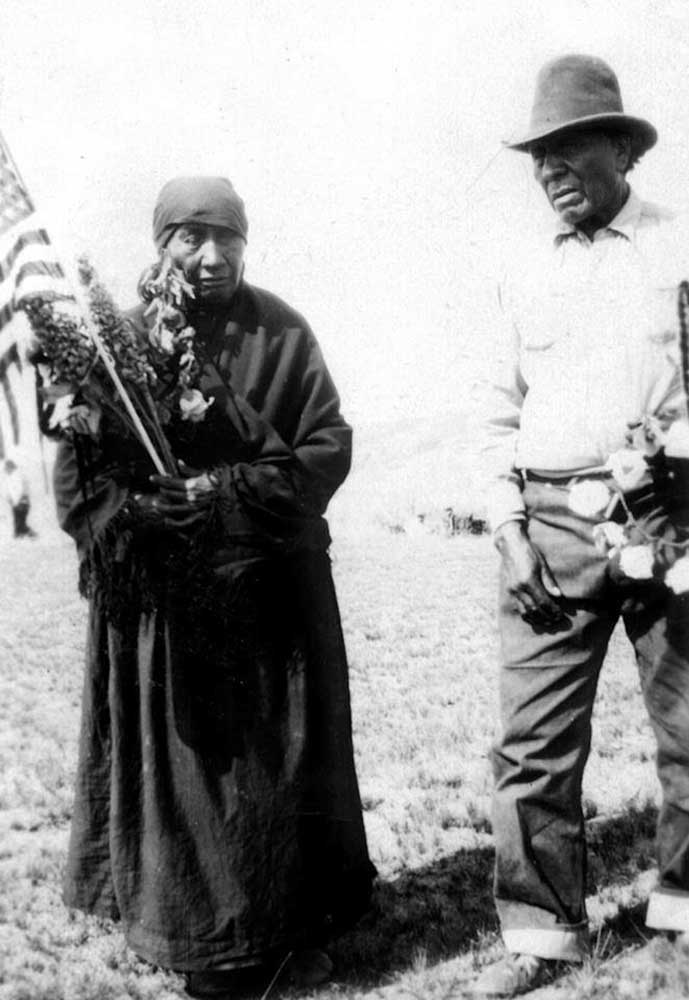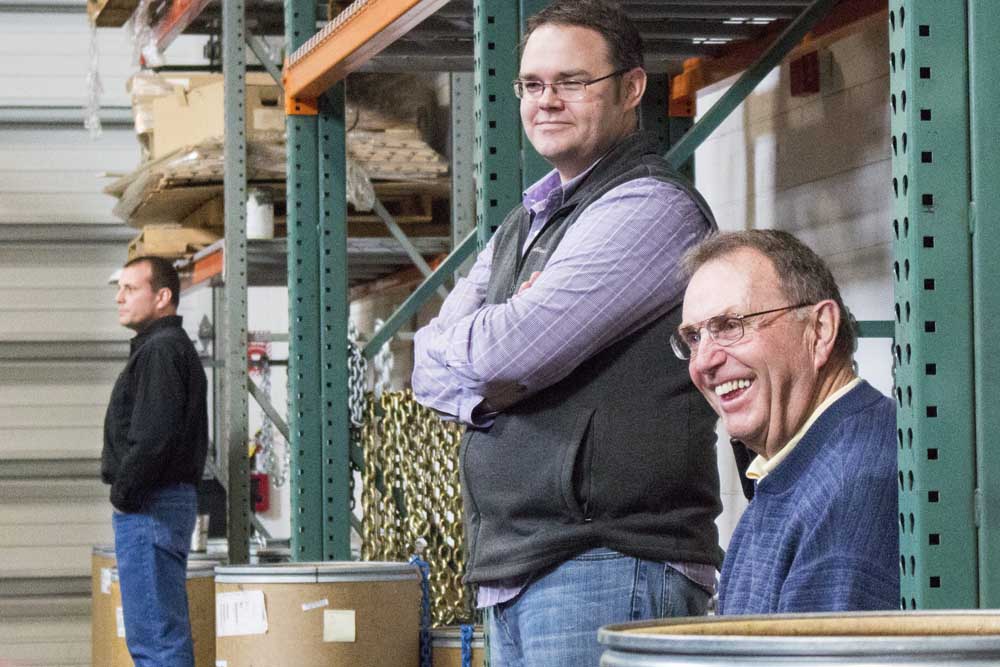Who was Crazy Horse?
Published 2:03 am Friday, November 10, 2017

- Julia Iron Cedar, half-sister to Crazy Horse stands next to Amos Old Eagle Clown the day their son Moses was brought home from Europe in 1919.
Descendants of Crazy Horse share the true story of their family ancestry
Trending
By Rebecca Herren
Seaside Signal
Dozens of books have been written about Crazy Horse rife with misconceptions and inaccuracies, filled with fiction and myths passed on as fact from book to book in the annals of American history. These sources often stress regimented beliefs about indigenous people and their culture.
Trending
Through 14 years of documented oral history as told to author William B. Matson, members of the Edward Clown family: Floyd Clown, Sr. and Doug War Eagle joined Matson at a book discussion and signing of “Crazy Horse: The Lakota Warrior’s Life & Legacy” held Nov. 1 at the Book Warehouse.
Matson began by answering the one question he is always asked, “How did you come to work with the Crazy Horse family?”
He said it began with a promise he made to his father who was dying from lymphoma — a promise to finish a project Matson’s father started years earlier.“My story starts before I was born when my dad was in the 7th Cavalry of George Armstrong Custer during World War II. They used to ask him, ‘Who won the Battle of the Little Bighorn’ and he answered, ‘the Indians did.’ And, that was the wrong answer.”
Though his father never elaborated further, he was punished for his response.
After the war, Matson’s father dedicated his time researching the Native American side of history and wanted to write a book through the Native voice about what really happened at Little Bighorn, Matson said, “but life got in the way.”
Matson’s father died before he got that chance.
Matson, who intended to make a documentary of his father’s project, met with hard lessons about American history and the culture of Native Americans. His research led him to Eugene Little Coyote, who told Matson during a phone conversation he did have stories to tell about Little Bighorn. Matson went to Montana to meet Little Coyote, but before he would share the stories, he took Matson to the library and said, “Read these,” and walked away.
And so he read, from a historical point of view. Matson noted what he read “did not make sense or come together well.”
His second contact took him to South Dakota. However, the meeting never took place because, as Matson said, “He stood me up.” With time on his hands, he drove to Bear Butte, a sacred mountain, to think of a different approach because the historical one wasn’t working. He began climbing and as he put it, “being a white guy all the spirituality happens at the top.” Half way up, Matson’s father spoke to him and said, “Open your heart,” which meant “I needed to know the spiritual side or I wouldn’t know the whole story.”
Once Matson read the spiritual aspect he’d missed from all those books, it all came together, but to get the story, he needed to know the families and earn their trust.
He first met Doug War Eagle, one of the three administrators of the Crazy Horse estate. “We were expecting you. [They] told us you were coming from the west,” said War Eagle. Matson said he didn’t know how to react, but went along with it.
War Eagle told Matson the family would tell him their story, but first Matson needed to join them in a sweat lodge to determine if his heart was good; and it was.
From the 1930s to 2001, the descendants — or blood relatives — of Crazy Horse were in hiding. In 2001, through guidance from their ancestors, they were ready to share their story as told to them, clarify the inaccuracies, and put the myths and assumptions to rest.
“Our ancestors told us it was now time for the truth, time to correct everything about our grandfather and our family,” stating how all the books ever written about Crazy Horse and his family “are all wrong,” Floyd Clown said.
Because Crazy Horse has no direct descendants, the Clown family is related by blood through his half-sister Iron Cedar who passed on their life history including the attack on Lt. Col. Fetterman; the Wounded Knee massacre; the battles of Rosebud and Little Big Horn; and the murder of Crazy Horse at Fort Robinson. Clown also noted that Crazy Horse had a premonition of his demise 15 months before his death.
It was after Crazy Horse’s death that the family began their descent into hiding and decades of silence. They were told if anyone spoke of Crazy Horse or of members of the family, to listen then walk away.
Clown described how the family was fearful of government retribution because of incidents that transpired throughout the years, and how they went to great lengths to remain anonymous, only to speak out when given the signs by their ancestors.
Though the book is a compelling addition to the body of works about Crazy Horse, Clown earnestly said, “It is the only one that is the truth. It is our way of ensuring everyone knows the truth about my grandfather and our family. We share our story so it remains true to the story our ancestors told, and the life Crazy Horse and his family lived.”
Between the two Dakota grandfathers there are 8,000 blood relatives of Crazy Horse, but it is Clown, War Eagle and another, Don Red Thunder, who are the sole administrators. They often speak at historical gatherings, national parks and book signings, such as this, about their history.
“When our grandfather was here, he was trying to preserve our land, our legacy to protect our ancestry,” Clown said referencing the 8.7 million acres of Black Hills land confiscated by the Act of 1877. Today, they are working on preserving their ancestral land, sovereignty and way of life. “It’s time to heal our family.”









